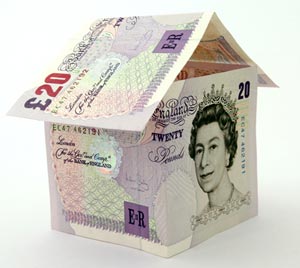
As we approach the summer months and settle into a routine of going out in summer clothes only to be drenched by a casual rainstorm, we must also accept the new Coalition Government and settle into a routine of being drenched by deficit lowering spending cuts and casual tax increases.
Yes, in the near future the Coalition Government will unveil its first Budget, a budget that will certainly bring bad news for Average Joe and John Q Public. In an era where national debt casts a grim cloud above us all the only thing that remains certain is the need for Government recouping. However it might not be all doom and gloom, there may be some interesting changes made for the taxpayer. With that in mind let us speculate on what the new budget will bring.
Capital Gains
A rise in Capital Gains Tax is practically certain. This was one of the Lib Dems main points and since the forming of the Coalition it is widely believed that Nick Clegg has convinced David Cameron to accept the changes that have been proposed. These will mainly consist of raising the current CGT rate of 18 percent and matching it with rates of income tax, leading to rates of 20, 40 and possible even 50 percent.
This increase will be a tough hobnob to swallow for people selling second homes and those in possession of buy-to-let properties.
VAT
Whilst no confirmation has been received, whispers have littered the halls of finance experts nationwide and many suggest that VAT could rise to up to 20 percent. The fact that it has not been mentioned by either the Conservatives or the Lib Dems is giving economists the idea that it is a clandestine certainty. Grant Thornton Accountant’s Mike Warburton told the Telegraph that “The very fact that they are not talking about it makes me think it is all the more likely to happen”.
Giving more weight to the argument is the fact that such a rise would see the government rake in £12 billion a year, a figure that will greatly help reduce the deficit. Estimates show that this increase will cost the average UK household £275 a year.
National Insurance Contributions
Previously there were plans in place to raise national insurance contributions for both employees and employers by one percent, a change which was to come into effect at the start of the next tax year. However Conservative plans went against this and the employers raise is likely to be scrapped and the employee raise wont affect workers earning less than £20,000. Though their initial plans were to protect people earning £35,000 or less it is thought that this will not go ahead and a low rate threshold will only be for the aforementioned £20,000 or less earners.
Personal Allowance
Under the Coalition government there are strong hopes that the figure for personal allowance will be increased from £6,475, up to £10,000, although this figure may be reached over a gradual period of time. These measures are being set in a bid to help the low earners of the country, and initially the threshold will probably rise by about £1,000. To ensure that it is indeed the low earners who benefit from this there may be some restructuring at the top end of the basic rate bracket so that people on large incomes do not profit from the personal allowance raise too.

